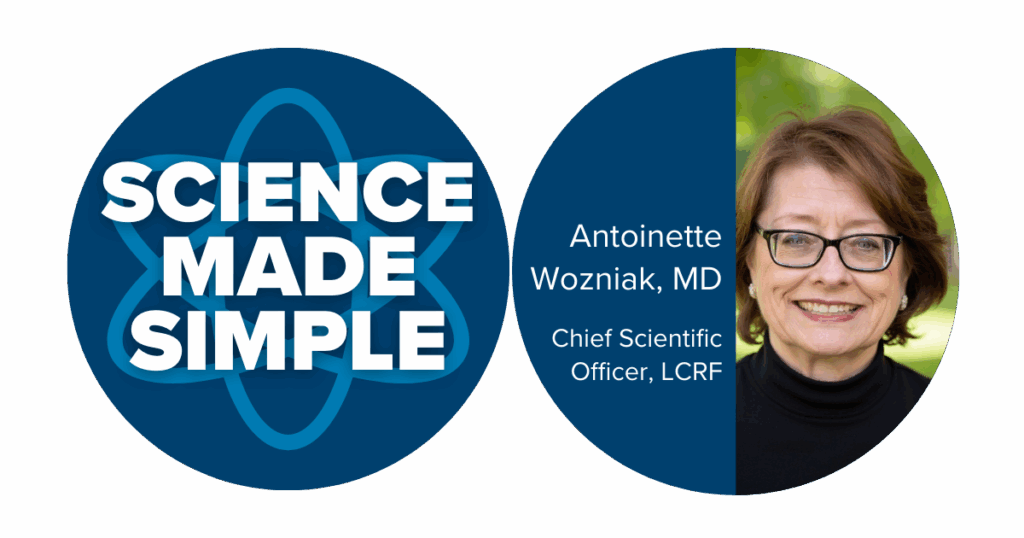
The good news
The Food and Drug Administration (FDA) granted accelerated approval to telisotuzumab vedotin-tllv, a c-MET-directed antibody drug conjugate, for adults with locally advanced or metastatic, non-squamous non-small cell lung cancer (NSCLC) with high c-MET protein overexpression, who have received a prior therapy.
Why it’s important
An antibody drug conjugate (ADC) is like a “guided missile.” It is composed of an antibody that binds to a “target” on the cancer cell. The ADC is then taken up by the cancer cell. Inside the cell, a “linker” connecting the antibody to the chemotherapy (payload) is broken and the treatment is released.
ADCs aim to deliver a concentrated dose of chemotherapy directly to cancer cells, minimizing damage to healthy cells. In the case of telisotuzumab the target is c-MET. The c-MET protein, also known as hepatocyte growth factor receptor, plays a crucial role in cell growth and development. Abnormal c-MET contributes to tumor progression and metastatic tumor activity, and it is associated with resistance to treatment. Increased (overexpression) of c-MET is present in up to 50% of patients with NSCLC.
Telisotuzumab was evaluated in multiple cancers in the LUMINOSITY study (NCT03539536). The trial included 84 patients with non-squamous NSCLC and high c-MET protein overexpression who had received prior therapy. The response rate was 35% and the median duration of the response was 7.2 months. The most common side effects were peripheral neuropathy, fatigue, decreased appetite, and edema. Patients also experienced lab abnormalities including decreased blood counts (hemoglobin, lymphocytes) and elevation of liver enzymes and glucose, and decreased sodium, phosphorus, and calcium. All side effects were manageable.
What it means for patients
Telisotuzumab is the first ADC to get FDA approval for the treatment of NSCLC. The indication for treatment is after prior standard therapy. This is an “accelerated approval” which is a mechanism whereby drugs that are seen to have a clinical benefit are made available while awaiting more information from additional clinical trials. The drug company usually will still need to conduct studies to confirm that tumor shrinkage predicts that patients will live longer before full FDA approval is granted.
What to look for
There is a big interest in utilizing ADCs for the treatment of all types of lung cancer. There is much work to be done including: identifying the best targets, developing the best technology to manufacture ADCs to direct their action at cancer cells and not normal tissue, and discovering biomarkers that determine which cancers are most likely to respond to treatment. Look for more research and clinical trials employing these novel agents in the treatment of lung cancer.
